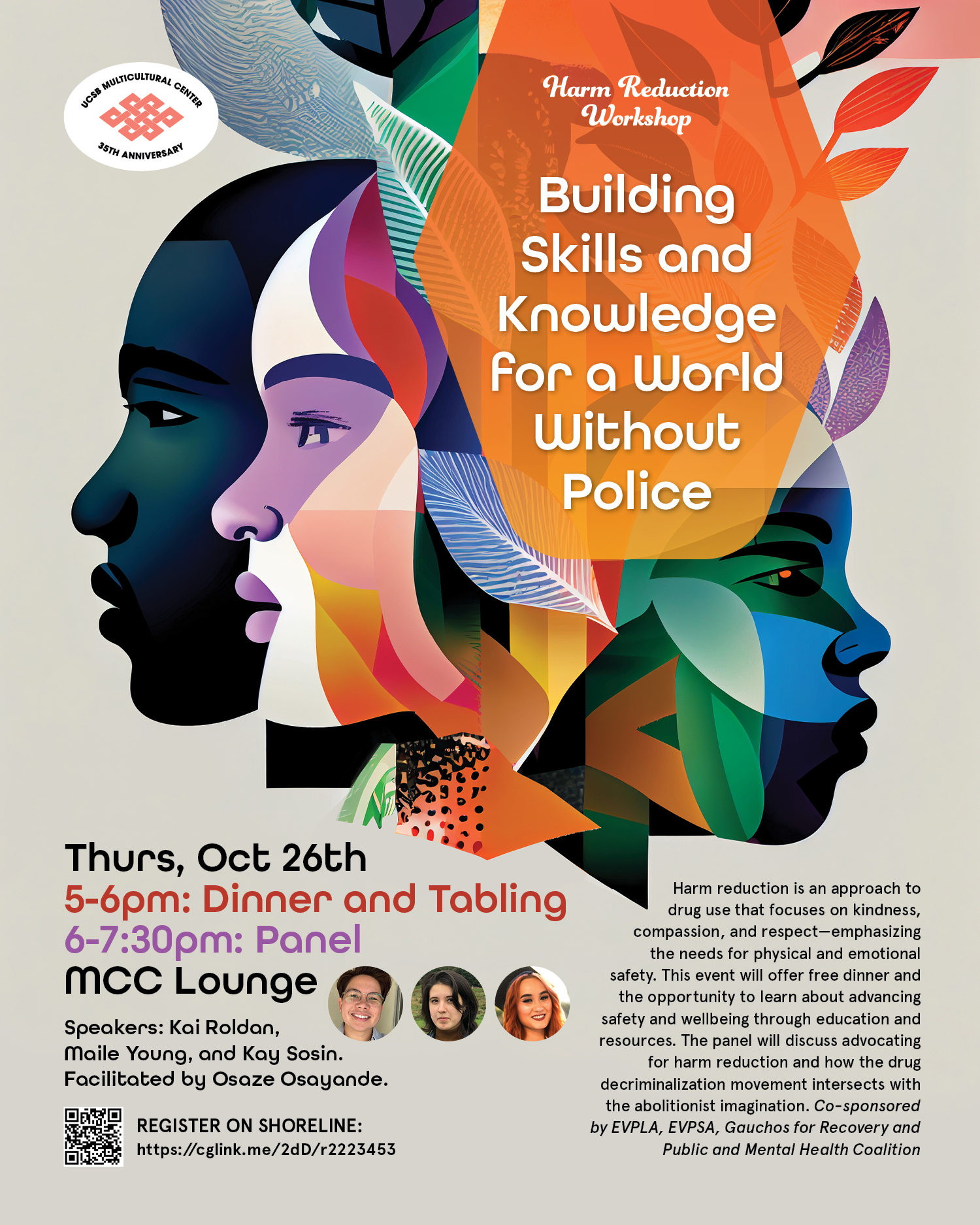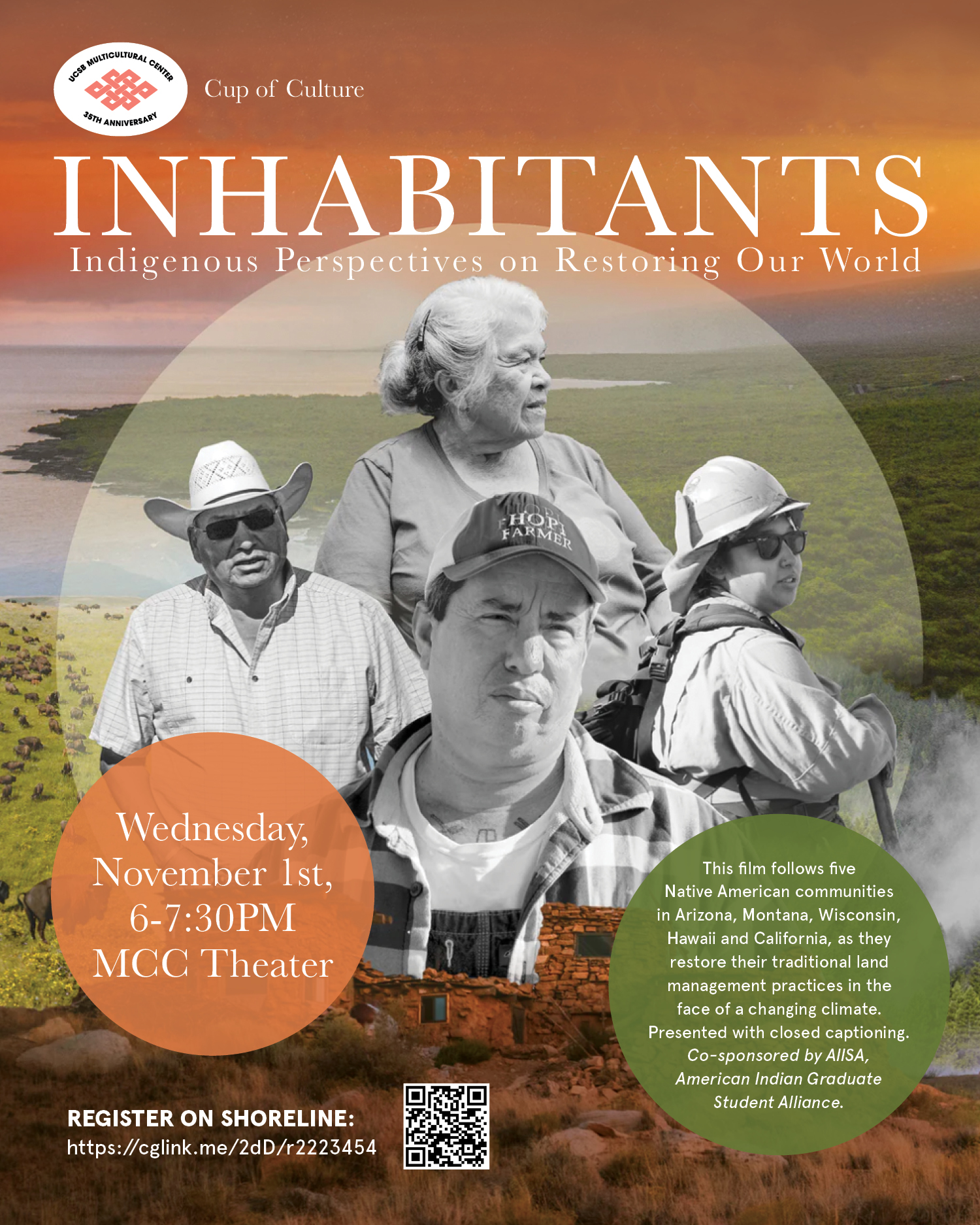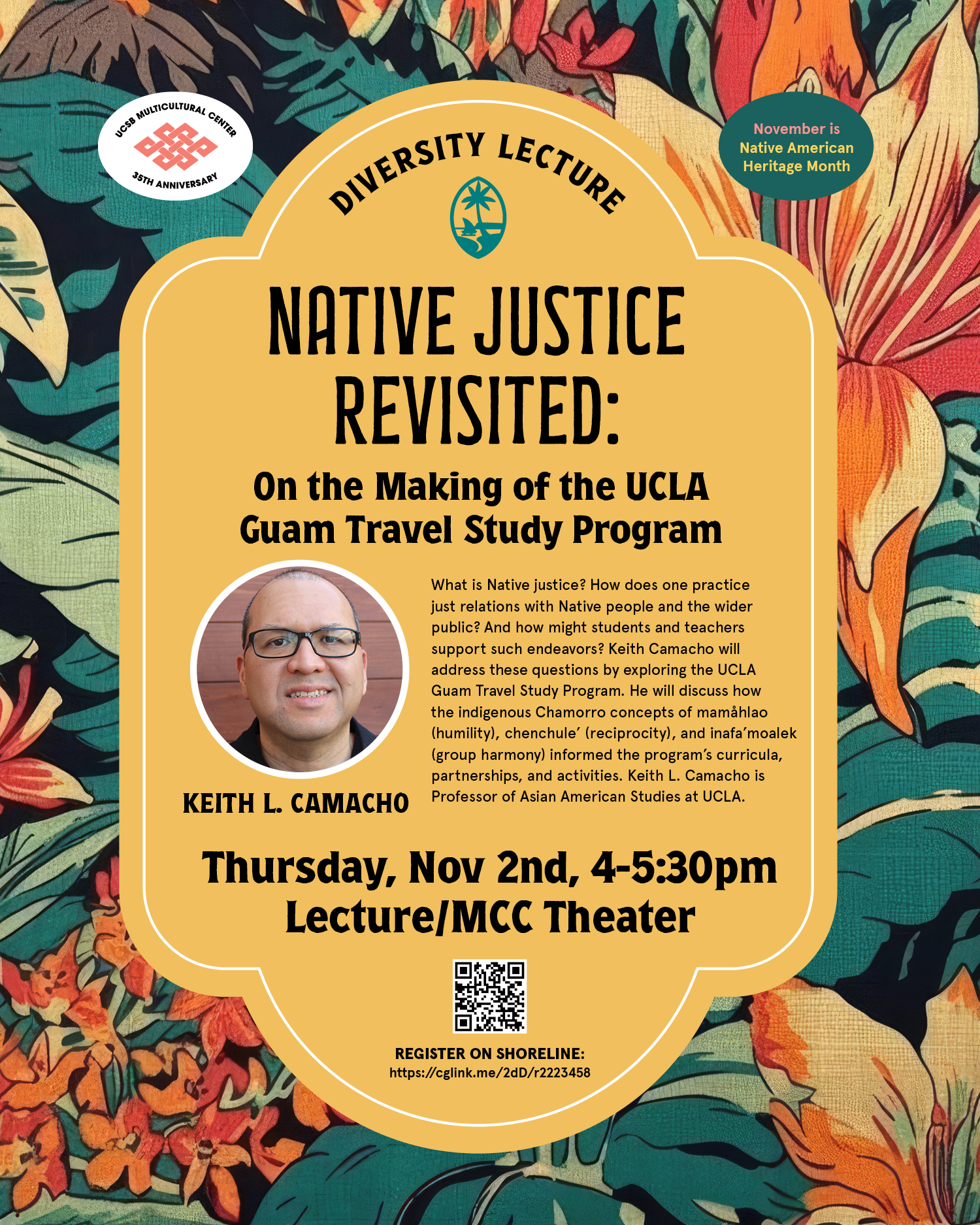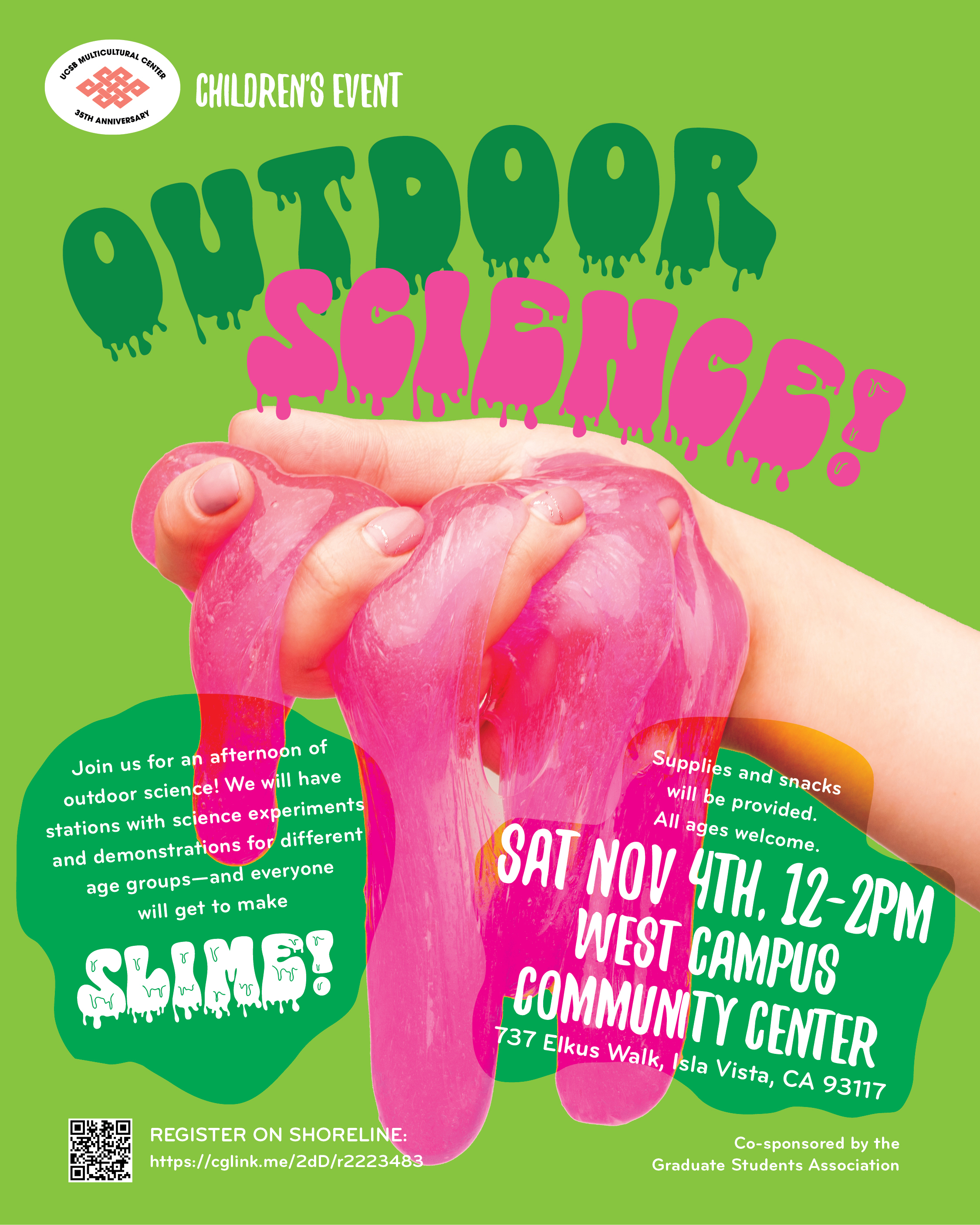All Events

Harm Reduction Workshop: Building Skills and Knowledge for a World Without Police | in collaboration with Gauchos for Recovery
Maile Young, Kai Roldan and Kay Sosin - Facilitated by Osaze Osayande
MCC Lounge
Harm reduction is an approach to drug use that focuses on kindness, compassion, and respect—emphasizing practical goals and the needs for physical and emotional safety. The tabling segment of this event will offer free dinner and the opportunity to learn about local organizations that advance community safety and wellbeing through education and resources. At the hybrid panel, we will discuss the merits and challenges of advocating for harm reduction and how the drug decriminalization movement more broadly intersects with the abolitionist imagination.
5-6PM Dinner and Tabling. 6-7:30PM Panel on harm reduction in the context of abolitionist organizing on college campuses and beyond.
Co- Sponsors: EVPLA, EVPSA, Gauchos for Recovery, Public and Mental Health Coalition
Speaker Bios:
- Kai Roldan (he/they) graduated from UCSB with a Bachelor’s in Psychology and from Pacifica Graduate Institute with a Master’s in Counseling Psychology. With a background in serving people with disabilities, and providing therapy to teenagers, Kai desires to be of service to others. As the Program Administrator, Kai supports SB ACT’s collaborative initiatives, provides general operational support for the organization, and assists in working with community partners. Kai is also a board member of SB Transgender Advocacy Network, an organization that provides resources for gender affirming care.
- Maile Young
- Kay Sosin

Cup of Culture
Inhabitants: Indigenous Perspectives on Restoring Our World
MCC Theater
“Inhabitants: Indigenous Perspectives on Restoring Our World” (2021) follows five Native American communities as they restore their traditional land management practices in the face of a changing climate. For millennia, Native Americans successfully stewarded and shaped their landscapes, but centuries of colonization have disrupted their ability to maintain these processes. From deserts, coastlines, forests, mountains, and prairies, Native communities across the US are restoring their ancient relationships with the land. The five stories include sustaining traditions of Hopi dryland farming in Arizona; restoring buffalo to the Blackfeet reservation in Montana; maintaining sustainable forestry on the Menominee reservation in Wisconsin; reviving native food forests in Hawaii; and returning prescribed fire to the landscape by the Karuk Tribe of California. As the climate crisis escalates, these time-tested practices of North America's original inhabitants are becoming increasingly essential in a rapidly changing world.
Co- Sponsors: AIISA, American Indian Graduate Student Alliance

Native Justice Revisited: On the Making of the UCLA Guam Travel Study Program
Keith L. Camacho
MCC Theater
What is Native justice? How does one theorize, debate, and practice just relations with Native people and the wider public? And how might students and teachers alike support such endeavors? In this talk, I will address these questions by exploring the making of the UCLA Guam Travel Study Program from 2017 - 2019. Keith will discuss the ways in which the indigenous Chamorro concepts of mamåhlao (humility), chenchule' (reciprocity), and inafa'moalek (group harmony) informed the program's academic curricula, community partnerships, and public-facing activities. Given this program's focus on Guam, Keith will also offer some historical background about the island's status as a US colony and its prospects for a decolonized and demilitarized future. As a conclusion, Keith will then highlight related efforts to advance Chamorro and Pacific Islander community-based scholarship in Guam, the Northern Mariana Islands, and Oceania more generally.
Speaker Bio: Keith L. Camacho is a Professor of Asian American Studies at the University of California, Los Angeles. He is also the author of Sacred Men: Law, Torture, and Retribution in Guam (Duke University Press, 2019) and the editor of Reppin': Pacific Islander Youth and Native Justice (University of Washington Press, 2021).

Children’s Event
Children’s Event: Outdoor Science!
West Campus Community Center
Join us for an afternoon of outdoor science! We will have stations with science experiments and demonstrations appropriate for different age groups—and everyone will get to make SLIME! Supplies and snacks will be provided. All ages welcome.
West Campus Community Center
737 Elkus Walk, Isla Vista, CA 93117
Co- Sponsors: Graduate Students Association
